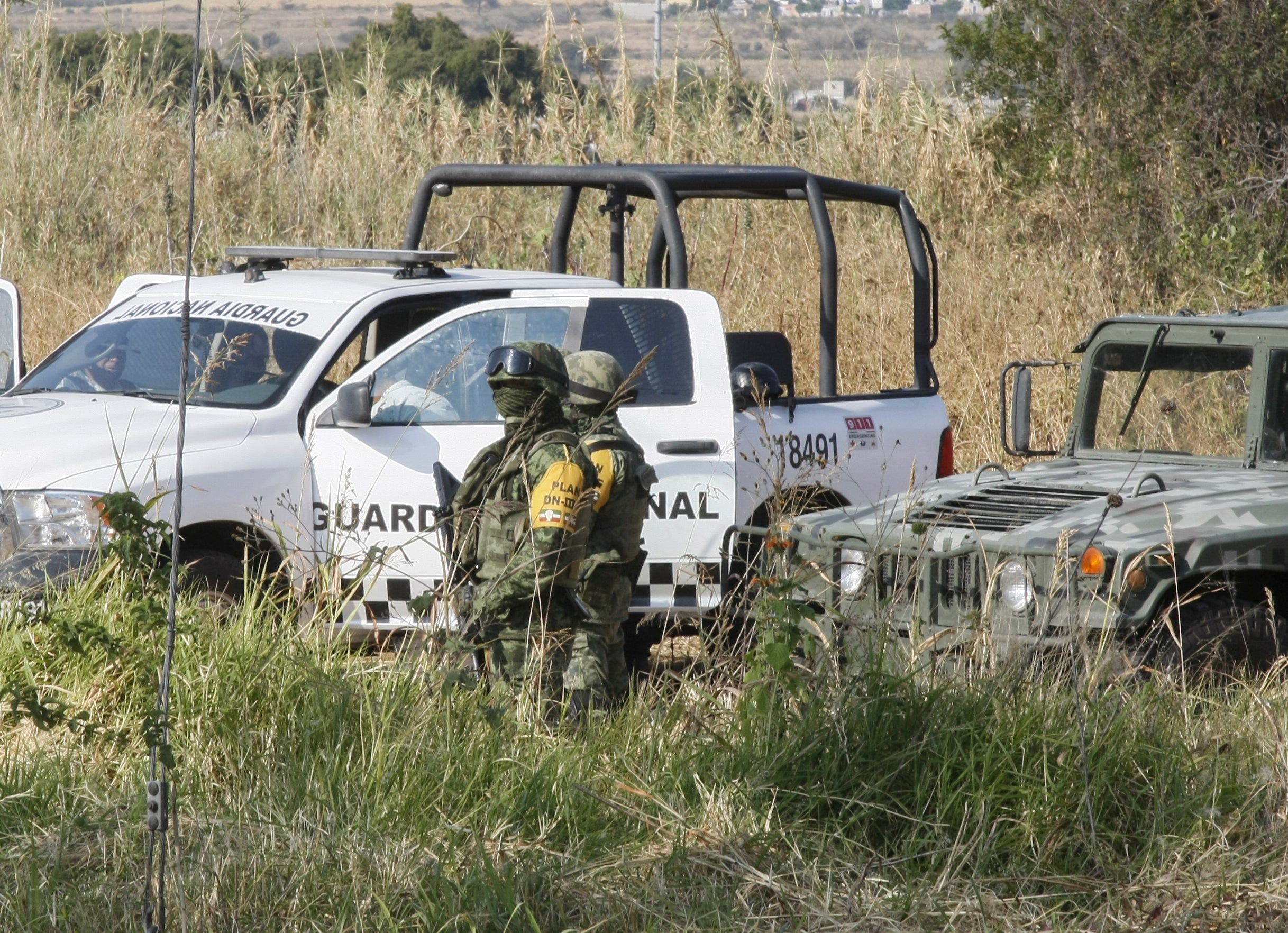Search continues in Mexico after 59 bodies found in mass graves
Search teams continue excavating a site in the central Mexico state of Guanajuato where in the past week they have found 59 bodies in clandestine graves

Your support helps us to tell the story
From reproductive rights to climate change to Big Tech, The Independent is on the ground when the story is developing. Whether it's investigating the financials of Elon Musk's pro-Trump PAC or producing our latest documentary, 'The A Word', which shines a light on the American women fighting for reproductive rights, we know how important it is to parse out the facts from the messaging.
At such a critical moment in US history, we need reporters on the ground. Your donation allows us to keep sending journalists to speak to both sides of the story.
The Independent is trusted by Americans across the entire political spectrum. And unlike many other quality news outlets, we choose not to lock Americans out of our reporting and analysis with paywalls. We believe quality journalism should be available to everyone, paid for by those who can afford it.
Your support makes all the difference.Search teams dug for more remains Thursday at a site in central Mexico where 59 bodies have already been found in clandestine graves over the past week in an area known as a cartel battleground.
It was the largest such burial site found to date in Guanajuato, the state with the largest number of homicides in Mexico, though bigger clandestine burial sites have been excavated in other parts of the country.
Especially striking about this discovery, but also a testament to the prevailing level of fear, is that the site is in the town of Salvatierra, not a desolate area out in the countryside.
The head of the official National Search Commission, Karla Quintana, said in an interview with W Radio that people had to have known that bodies were being disposed of there.
“This place is in a neighborhood,” Quintana said. “To get there you have to pass homes, you have to pass streets ... the people know.”
The sites is a vacant lot just under a half-mile (kilometer) from the city's main plaza. It is located next to the Lerma River, on the other side of which is a park. Nearby stands a slaughterhouse.
Quintana said the tip came about two weeks ago from relatives looking for missing loved ones. She said searchers have found indications that more bodies may be buried there, so the search continues. The goal is to recover the bodies, identify them and return the remains to their families, she said.
Quintana said many victims seemed young and there were a significant number of women. Quintana announced the find late Wednesday, calling it “a sad and terrible discovery.”
The bodies were extracted over the last week from 52 pits at a property in Salvatierra. The scene was considered dangerous enough that the army and National Guard provided security for the excavations. The area is near the border with Michoacan state and there is known to be a significant organized crime presence.
On Thursday, the site of the burial pits was cordoned off by police.
Leticia Valencia, the mother of a missing man, waited outside the police perimeter, hoping she might be allowed to enter to look for any signs her son might have been among the bodies buried there.
“What I want to do is to be allowed to go inside, to see if I can recognize any of the clothing they have excavated,” Valencia.
Valencia's son, José Manuel Fabián Valencia, disappeared along with a friend in 2018, and has not been heard from since. It's a tale of desperation heard all too frequently in Guanajuato.
But when photos began circulating on social media this week of the excavations at the vacant lot, among the items pulled from the graves was a boot that Valencia thought might be her son's.
That glimmer of hope — of at least finding her son's remains, and be able to finally say farewell to him — led her to the excavation site.
“He could be here,” she said.
Guanajuato has been the scene of bloody turf battles between the Jalisco cartel and local gangs backed by the Sinaloa cartel.
President Andrés Manuel López Obrador said Thursday the situation in Guanajuato is “very difficult.” He said the deployment of the National Guard in the state was at least allowing authorities to reach areas that were previously inaccessible due to the sway of organized crime.